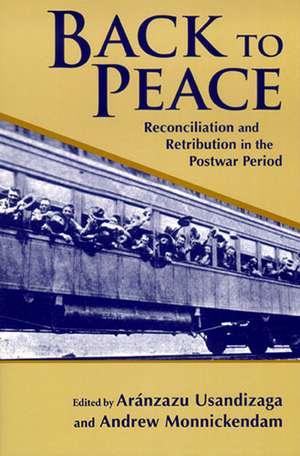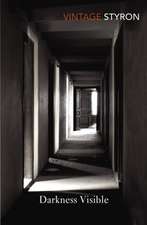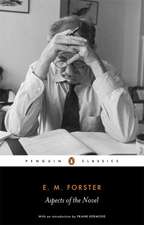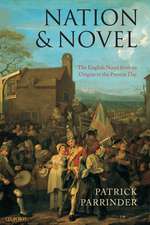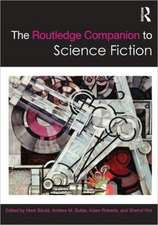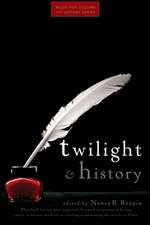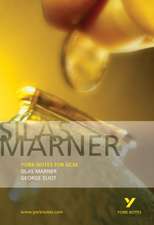Back to Peace – Reconciliation and Retribution in the Postwar Period
Autor Aranzazu Usandizaga, Andrew Monnickendamen Limba Engleză Paperback – 30 apr 2007
Preț: 278.28 lei
Nou
Puncte Express: 417
Preț estimativ în valută:
53.26€ • 55.39$ • 43.97£
53.26€ • 55.39$ • 43.97£
Carte tipărită la comandă
Livrare economică 15-29 aprilie
Preluare comenzi: 021 569.72.76
Specificații
ISBN-13: 9780268044527
ISBN-10: 026804452X
Pagini: 320
Dimensiuni: 186 x 228 x 20 mm
Greutate: 0.47 kg
Ediția:1
Editura: MR – University of Notre Dame Press
ISBN-10: 026804452X
Pagini: 320
Dimensiuni: 186 x 228 x 20 mm
Greutate: 0.47 kg
Ediția:1
Editura: MR – University of Notre Dame Press
Recenzii
“This remarkable collection extends the analysis of war literature into a new area by asking what happens after the cessation of hostilities. How can individuals, indeed entire cultures, return to peace? This groundbreaking collection shows how war's destruction and terrible creations continue long after the conflict has ended. Essential.” —Choice
“Back to Peace, which straddles literature, history, and politics, does not disappoint. . . .The volume aims 'to initiate the pioneering work of searching for the common language of the return to peace' by examining literature of war and literature about war. And it finds this language of a return to peace in art itself-a poignant place to begin, since artists are so tellingly among the first groups to be eradicated in repressive regimes and in times of violence.” —Human Rights & Human Welfare: An International Review of Books and Other Publications
“[Back to Peace] attempts an 'understanding of war' not as an absolute, but as the manifestation of contradictory human tendencies: to self-destruction and philanthropy; and its analyzes the various literary responses to the processes that individuals, communities and nations undertake in order to return to the 'prelapsarian' status quo. All the editors and contributors must be congratulated for their daring approach to a theme and label, peace, that should be debated and reviewed from the points of view of history, sociology, philosophy, politics and even anthropology. It is to the credit of Usandizaga and Monnickendam that they have conducted such a pioneering study in the field of literature.” —Journal of the Spanish Association of Anglo-American Studies
Notă biografică
Aránzazu Usandizaga and Andrew Monnickendam are professors of American and English literature, respectively, at the Universitat Autonoma de Barcelona. They are coeditors of Dressing Up for War: Transformations of Gender and Genre in the Discourse and Literature of War.
Contributors: Aránzazu Usandizaga, Andrew Monnickendam, Brian Dillon, William Blazek, Beatrice Trefalt, Mary Anne Schofield, Jennifer Terry, Janet Dawson, Don Dingledine, Laurie Kaplan, Claire Tylee, Renny Christopher, Kathy J. Phillips, Donna Coates, and Camila Loew.
Descriere
“The focus of this volume of essays on the literary representation of the aftermaths of wars over time and place is very significant. Although there have been many studies of gender and wartime, and this has expanded into a recognized field of academic study, little attention has been paid to the return to a peacetime landscape. To focus on this complex subject and its literature provides the opening not only for new pathways to academic teaching and research, but to important interventions in the ways we think about war literature and the many periods that fall under the rubric of ‘interwar.’” —Phyllis Lassner, Northwestern University
“Back to Peace provides a critical meditation on the contested social and cultural terrains of peacetime, from Dryden's England to the more recent diaspora of Vietnamese writers in exile. The editors of this volume bring together an international group of scholars to trouble the categories of peace and war and to expose the anxieties and ambiguities that strew the paths of postwar writers. Readers of these essays will find rich evidence that the return to peace—represented in poetry, drama, fiction, and nonfiction—is anything but peaceful for individuals or nations.” —Jane E. Schultz, Indiana University-Purdue University-Indianapolis
Scholars have rarely studied a society’s return to peace as a cultural category, as a formative experience common to many lives at any time in history. This collection of original essays by historians and literary critics explores the complex and difficult question of how a culture does, in fact, “return to peace” after a war. Combining analyses of both literary texts and historical sources, the contributors focus on the cultural, political, and personal implications of returning to peace.
